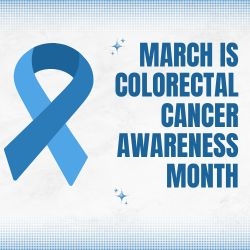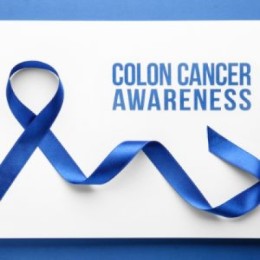Posted On: March 6, 2024 by Community HealthCare System in: News

Who does colorectal cancer affect?
One in 23 men and 1 in 25 women will be diagnosed with colorectal (colon or rectal) cancer in their lifetime. This disease affects men and women of all racial and ethnic groups and is most often found in people 50 years or older.
Incidence in those younger than 50, or young-onset colorectal cancer, is on the rise. Among those under age 55, the incidence rate is increasing by 1.5% every year. According to the latest data, colorectal cancer is the leading cause of cancer death among men aged 20–49 years.
Screening disparities are also evident among Black and Alaskan Native communities, which experience higher incidence and mortality rates.
Why is it so important to get screened?
Colorectal cancer (cancer of the colon and/or rectum) is the second leading cause of cancer death in the U.S., but it is also one of the most preventable and is highly treatable when discovered early. Screening can prevent many cases of colorectal cancer through the detection and removal of precancerous growths.
Why is it important to get checked on time?
Getting checked for colorectal cancer can save your life. If caught early, you have a 90% chance of survival. Getting a colonoscopy is the best option, especially if you have a family history. Many people are afraid of getting a colonoscopy but, if your provider recommends colonoscopy, remind yourself that colorectal cancer is the only cancer that is preventable. Any polyps found during a colonoscopy are clipped out before they have a chance to develop into cancer. A colonoscopy is a very safe and routine procedure.










0 comments